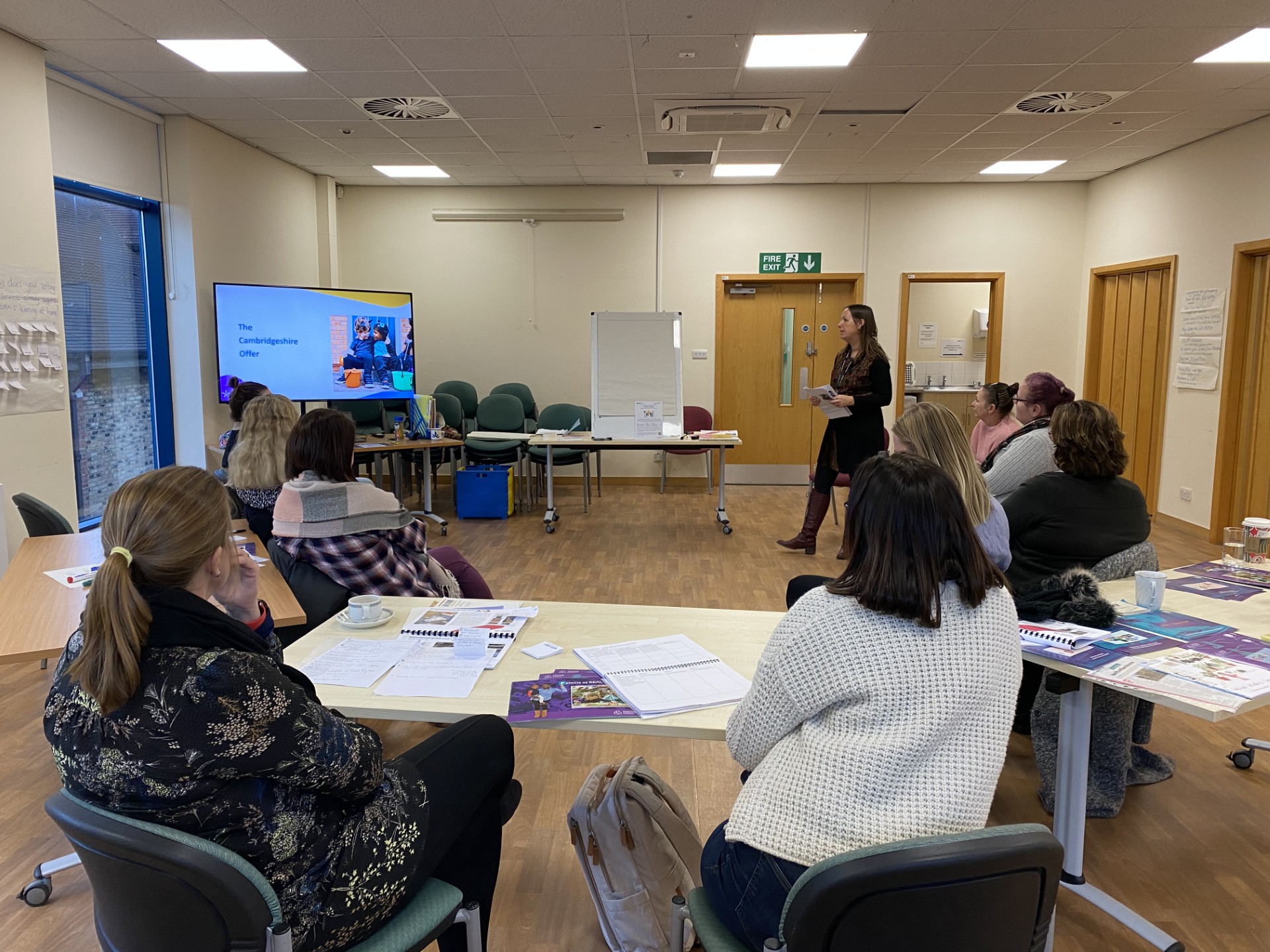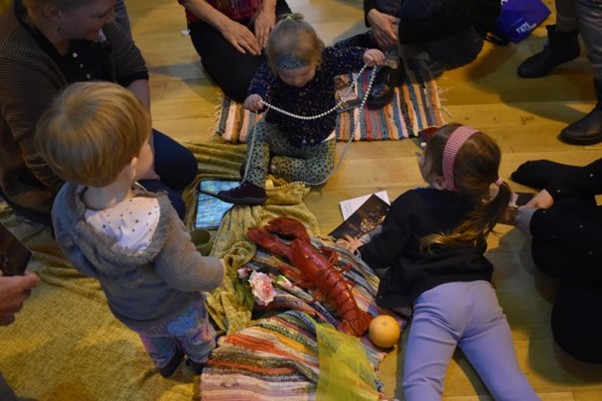Introduction to Making it REAL is a one-day training course that enables all practitioners, including, but not limited to, early years setting and school staff, library staff, child and family centre workers, community groups, museum staff, working with families with children aged two to five years, to understand and embed elements of the Making it REAL approach in everyday practice, overseen by the National Children's Bureau.
Participants will learn more about how to work with parents to support young children’s early communication, language, and literacy development through everyday activities in the home learning environment.
The Making it REAL approach is based on the Opportunities, Recognition, Interaction and Modelling (ORIM) framework, which highlights four approaches parents can take to create a home learning environment that supports children’s early literacy development.
Whilst networking with other professionals working with families with children from two to five years, during the Introduction to Making it REAL training, participants will learn how to support parents to:
- Create opportunities for children’s literacy development by making children’s books and writing materials available and accessible in the home environment.
- Recognise and encourage children’s literacy milestones.
- Interact with children positively and support real-life literacy tasks.
- Act as models of literacy users, so children see parents use literacy in everyday life.

"The trainers are amazing, cheerful and creative with a vast knowledge, and it is a real pleasure to be taking part in." – Playground Assistant.
Audience
This course is aimed at family-facing early years practitioners, including childminders, setting practitioners, Child and Family Centre staff, reception-class staff, family-facing library staff, and representatives of community groups who work with families of children aged two to five years old in Cambridgeshire.
Cambridgeshire partners and stakeholders working with families of young children across the county are invited to join this training through a multi-agency approach.
Objectives
- To learn about an evidence-based approach to early literacy work with families.
- To understand and develop one's practice based on the REAL research and the ORIM framework.
- To understand the REAL approach and find out about existing practices based on the REAL approach.
- To share examples of existing practice with the group and learn from each other.
- To enable reflection on working with parents in a range of environments and to identify the strategies required.
- To identify potential resources, opportunities, challenges and sources of support.
- To help participants feel confident to take the work forward.
- To consider how the impact might be monitored.
Course dates
| Date | Time | Location |
|
Monday, 20 October 2025 |
9.45 am to 4.45 pm | March Library |
|
Thursday, 12 February 2026 |
10 am to 5 pm | Ely Library |
|
Monday, 2 March 2026, Monday, 9 March 2026, and Monday, 16 March 2026 |
7 pm to 9 pm | Online via Microsoft Teams |
|
Monday, 27 April 2026 |
9.45 am to 4.45 pm | March Library |
|
Monday, 15 June 2026 |
9.30 am to 4.30 pm | The Grove Primary School, Cambridge |
Booking and reservations for Early Years Workforce Development.
Cost details
| Per delegate | £8* |
*Delegates will receive a Making it REAL course booklet.
Introduction to Making it REAL network meetings
"It has built on my existing knowledge and prompted me to remember things I had forgotten." – CFC Family Support Worker.
Once you have completed the Introduction to Making it REAL training, we welcome you to join our free network meetings. We offer two network meetings across the academic year, autumn, and summer. These informal meetings provide an opportunity to share ideas, discuss practice and ask questions. Please do book onto one or more of these online network meetings.
| Date | Time | Location |
|
Tuesday, 11 November 2025 |
3.30 pm to 4.15 pm | Online via Microsoft Teams |
|
Monday, 11 May 2026 |
7 pm to 7.45 pm | Online via Microsoft Teams |
Booking and reservations for Early Years Workforce Development.
Testimonials

"A recent wow moment relating to oral language at some community workshops we have been running. Parents reported children learning new words such as lobster, featured in paintings we were looking at, and harp for the first time in the workshop context and then using these again at home when discussing the activities they had done together." – Nicola Wallis, Practitioner Research Associate, Collections and Early Childhood, The Fitzwilliam Museum.
Contact

